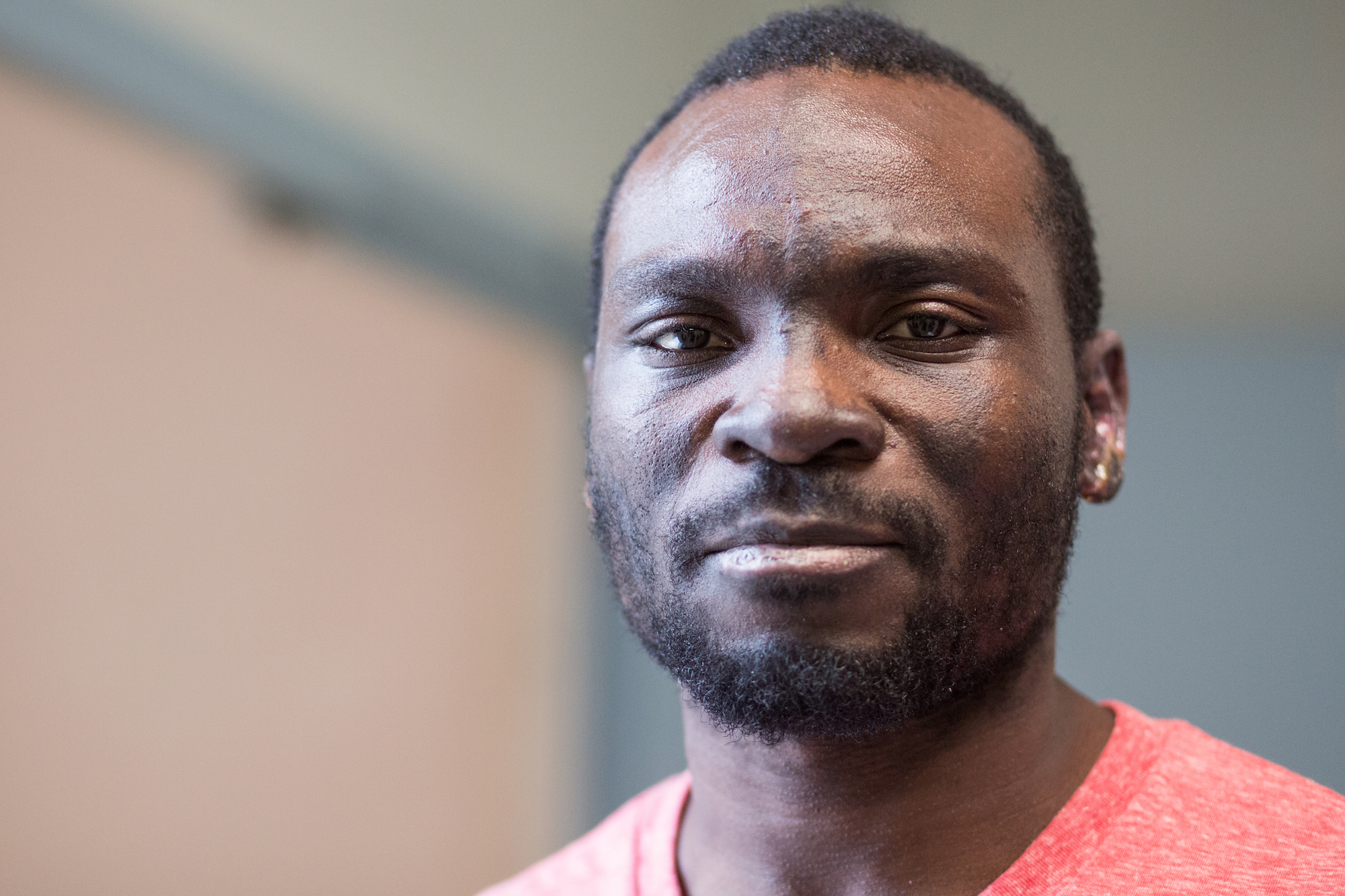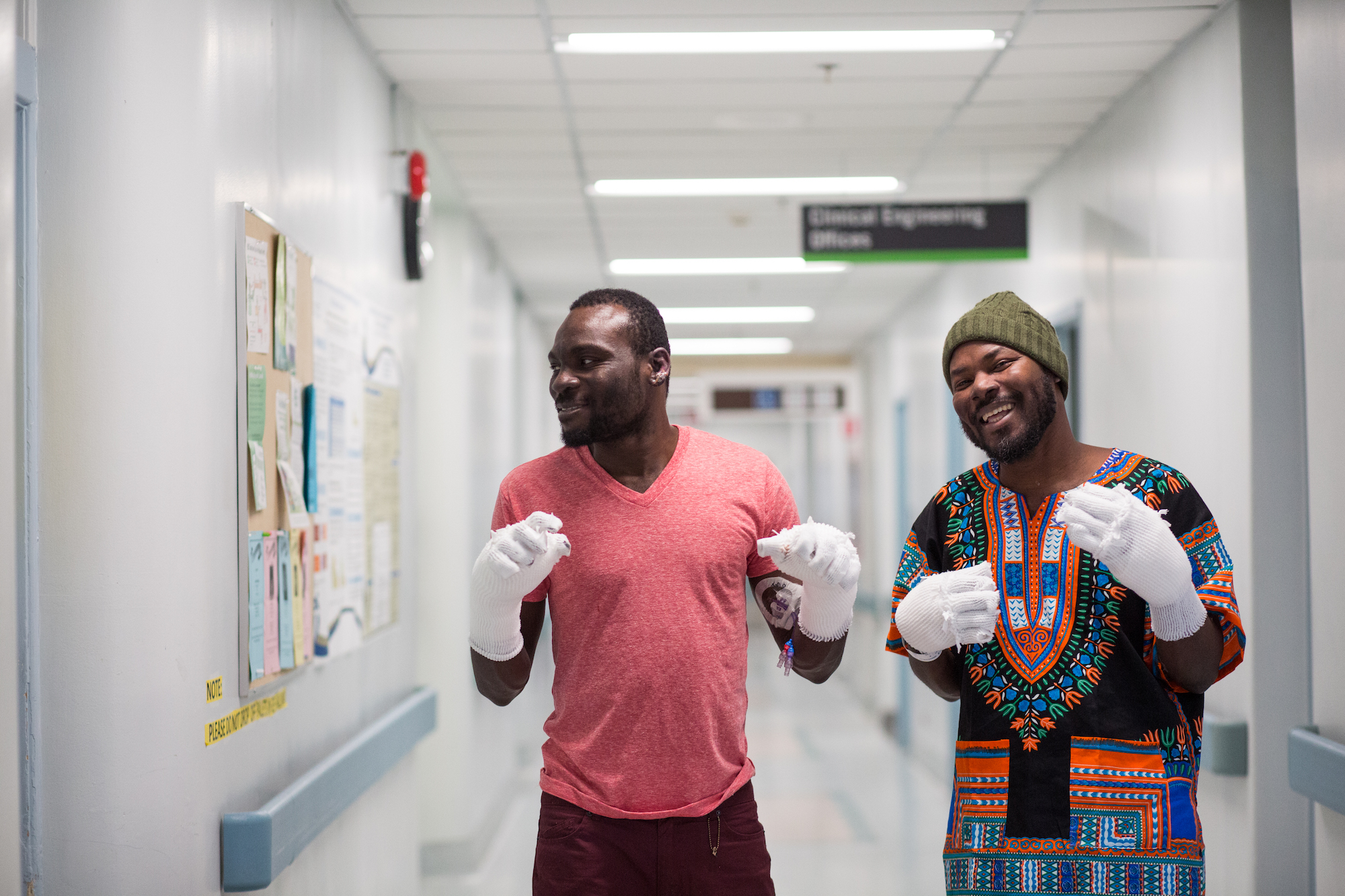
Ghanaian who lost fingers to frostbite during Canada border-crossing gets refugee status
One of two Ghanaian asylum seekers who lost their fingers to frostbite after walking for 10 hours to cross the US-Canada border has learned he’ll be able to stay in Canada.
Advertisement
“Good news, I won my case and I have been accepted to stay in Canada am soo excited,” Seidu Mohammed told CBC.
The 24-year-old crossed the border on Christmas Eve with 35-year-old Razak Iyal, who he’d met at a bus station in Grand Forks, North Dakota.
VICE News previously spoke with the two men as they recovered in hospital, following their perilous journey.
The two paid a taxi driver $200 each, got dropped off at a spot he claimed was close to the border, and began walking through frozen farm fields in -18°C temperature towards the small border town of Emerson, Manitoba.
Around 2,000 people have made similar journeys since January, crossing illegally, despite an agreement between the U.S. and Canada that generally forbids would-be refugees from applying for status in Canada if they’re arriving from the United States — a provision under the Safe Third Country Agreement, which has been in effect since 2004.

Mohammed left Ghana for the U.S. in 2015, scared for his life after being outed as bisexual. In Ghana, it’s illegal for men to engage in sex with other men, and homosexual activity is punishable by up to three years in prison. LGBT people are also frequently discriminated against and attacked, with little protection from law enforcement.
After his visa expired, anticipating an immigration crackdown by US President Donald Trump, Mohammed set out to sneak into Canada.
“He plans to live in Winnipeg and coach kids in soccer,” his lawyer Bashir Ahmed told VICE News. “He is so emotionally overwhelmed and happy.”
His friend Iyal will learn his fate at his hearing on June 13.
And while he’s been lucky, he’s just one of thousands who have made similar claims last year. Many of them were not so fortunate.
The Immigration and Refugee Board was not able to provide a breakdown of outcomes by types of claims, but the according to the latest stats, the Royal Canadian Mounted Police intercepted 2,719 people crossing into Canada illegally in the first four months of this year.
It’s impossible to tell, however, how many of those interceptions translated into successful refugee claims. The refugee board does not specifically report the acceptance rate for those intercepted at the border.
The refugee board does track claims made at points of entry — any land border, naval port, or airport — or who are brought to one by a police officer; and inland claims, which are claims made by claimants who are already in Canada and who visit a refugee or immigration office.
Canada-wide in 2016, a majority of claims were made inland, at roughly 13,000; while a minority made at official points of entry, at 9,100. Inland claims, however, were significantly more likely to be rejected, by nearly a two-to-one margin: 3,200 to 1,500.

According to numbers obtained by VICE News in March, a total of nearly 16,500 claims were finalized by the Refugee Protection Division of the Immigration and Refugee Board in 2016.
Of those, 10,226 were accepted, 4,970 were rejected, 286 were abandoned, and 155 with withdrawn, leaving an acceptance rate of just over 60 percent.
The refugee board could not provide a breakdown of which ports of entry claimants were coming from or their countries of origin.
“It’s simply not information that is captured in our case management system,” said spokesperson Anna Pape. “Our case management system is able to distinguish between port of entry claims (CBSA referred) and inland claims.”
There are also people who may enter Canada as visitors from the US, who may enter undetected, and later make a claim for refugee protection at an inland office, Pape explained.



